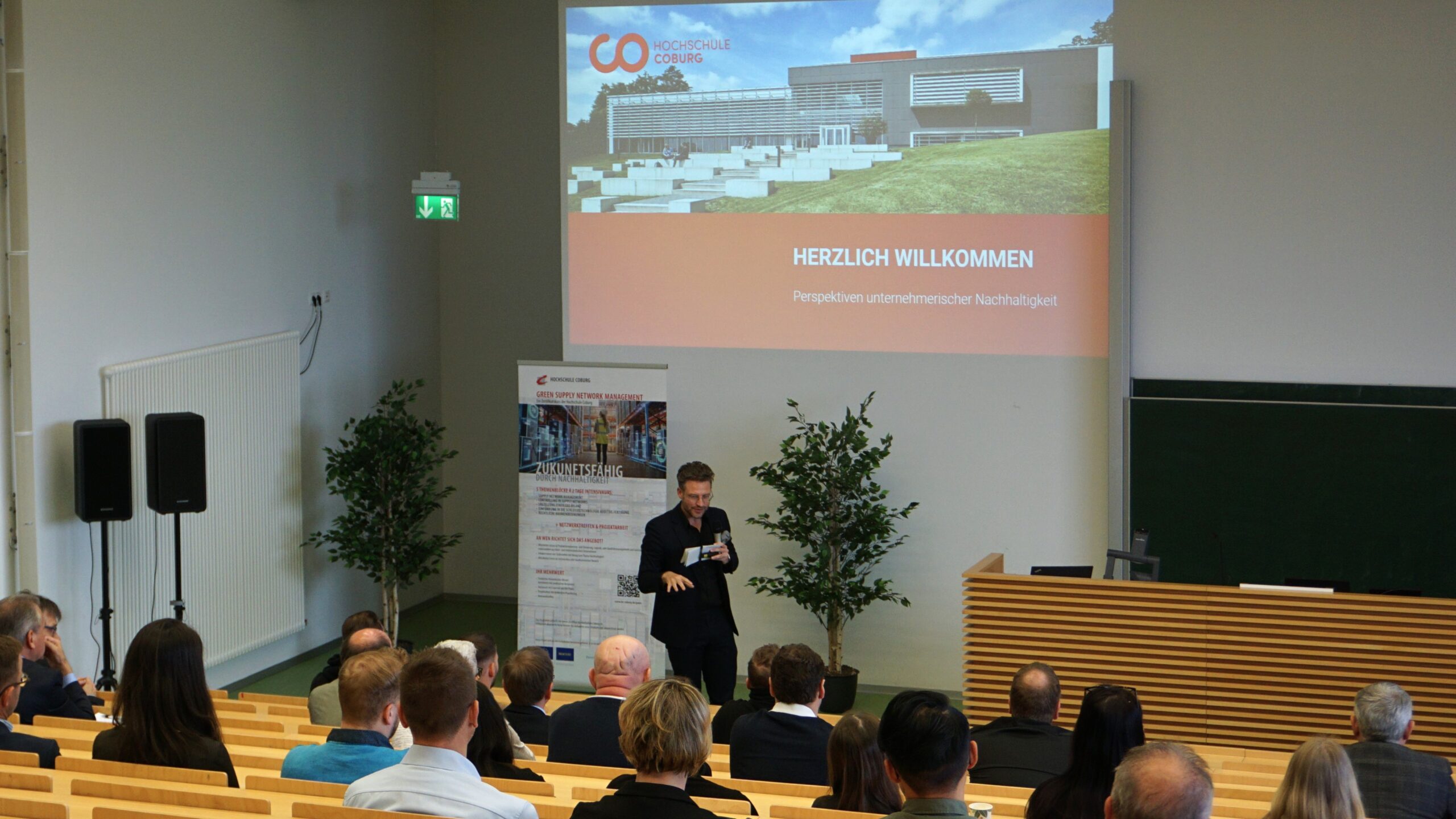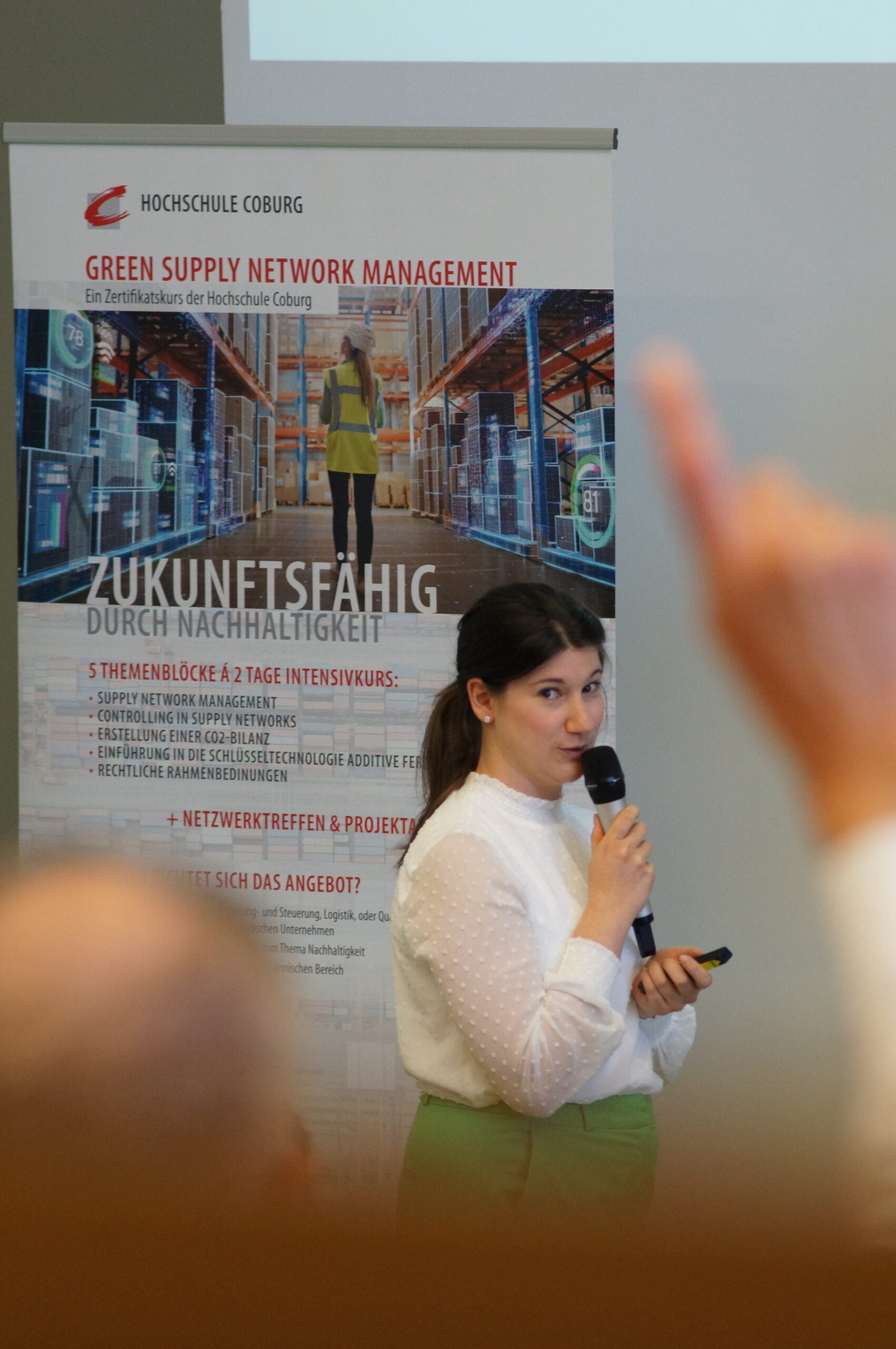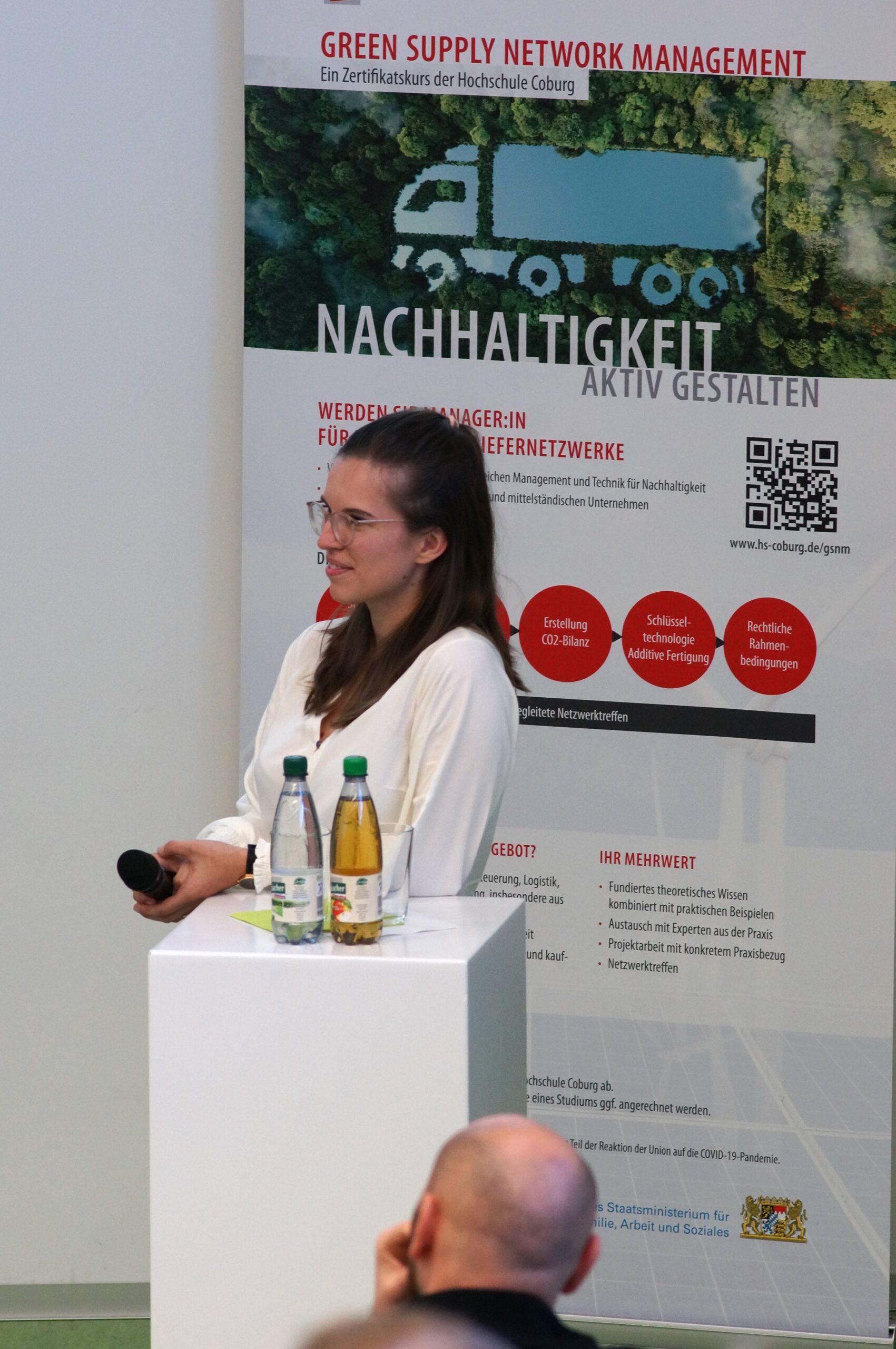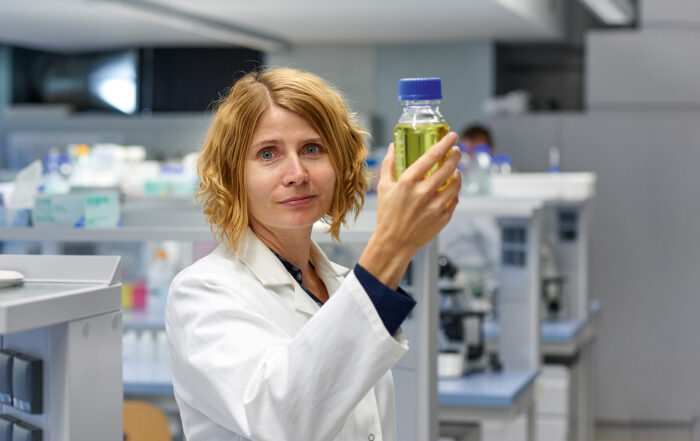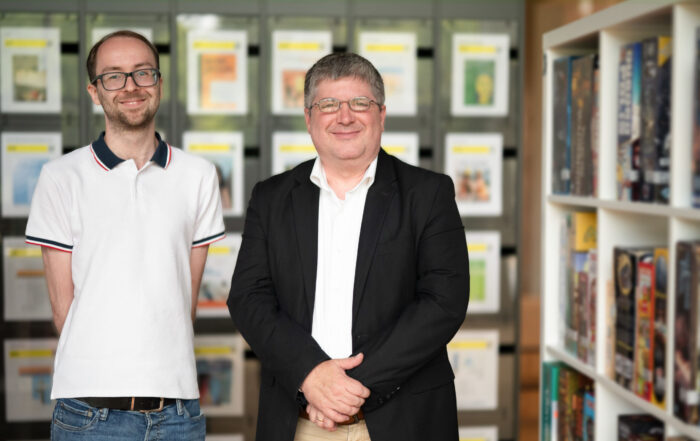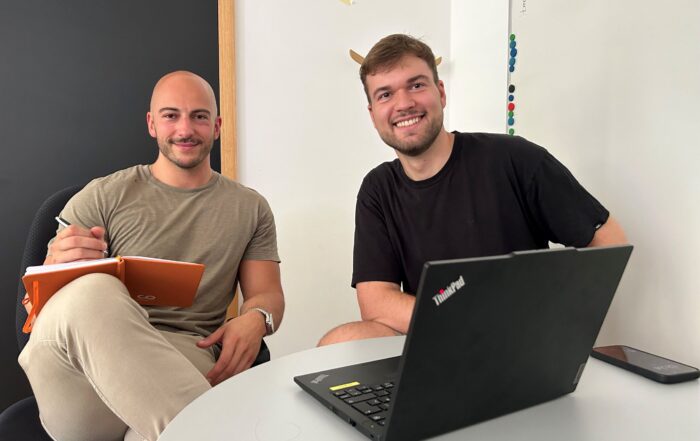30. April '24
The event “Perspectives on Corporate Sustainability” at Coburg University of Applied Sciences offered over 70 participants from business and science as well as alumni of the “Green Supply Network Management” certificate course a platform for exchanging ideas and experiences in the area of corporate sustainability activities. Keynote speakers discussed the challenges and opportunities of environmental and social sustainability in companies.
Nick Macrea from @KMPG Germany addressed the role of legislators in promoting sustainable action and advised companies to prepare for non-financial reporting.
He pointed out that around 15,000 companies in Germany are already directly affected by non-financial reporting.
For other large companies, the obligation will then begin for the 2025 reporting year.
Indirectly, however, many small and medium-sized companies are already affected, which are not yet legally obliged, but which must implement reporting at the request of their major customers. “Climate protection costs, but doing nothing will be more expensive” Lisa Reehten from Bosch addressed the costs of climate protection and encouraged companies to be pragmatic and take action.
Under the motto “Climate protection costs, but doing nothing is more expensive”, she reported on Robert Bosch GmbH’s path to climate neutrality and emphasized the importance of energy efficiency, the generation of climate-neutral electricity, the purchase of green electricity and the possibilities of offsetting.
She encouraged the participants to be pragmatic and simply get started, as even small measures can often bring good improvements.
Examples from consulting practice show how worthwhile climate neutrality can be.
Hansgrohe, for example, has premium products thanks to its good reputation, and customers are willing to pay for more quality and sustainability.
Automotive supplier Chiron enables its customers to save energy and therefore costs by using more sustainable products.
Sustainability is also a feature of employer attractiveness. Panel discussion: Transparency, accountability and training The importance of transparency, accountability and continuous training for the implementation of sustainability efforts was the topic of a panel discussion with Nadja Büttner from Wiegand-Glas in Steinbach am Wald, Friedemann Decker from Dr. Pfleger Arzneimittel in Bamberg and Prof. Dr. Hedwig Schmid, Professor of Human Resources Management, Leadership and Change Management at Coburg University of Applied Sciences.
Prof. Dr. Michael Hartmann, Professor of Marketing and Sales and Vice Dean of the host Faculty of Continuing Education, moderated the event.
Sustainability was discussed as a change project.
The focus was on developing the necessary skills for more sustainability in companies.
The participants in the discussion emphasized the need for transparency, the definition of responsibilities and the communication of urgency and benefits to all employees.
A clear “tone from the top” and a constructive corporate culture are required.
The panellists emphasized the importance of regular further training for employees.


